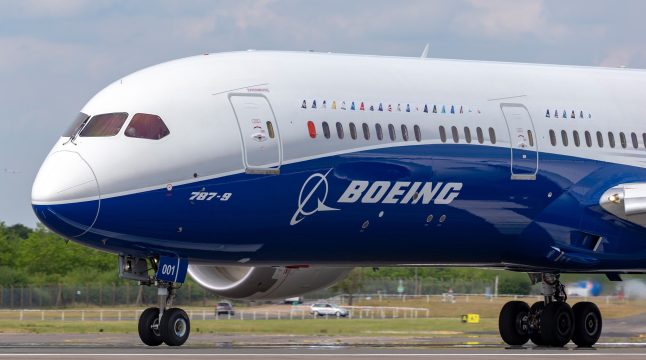
Boeing’s Losses Widen in Third Quarter, Firm Seeks Operational and Cultural Changes
The Boeing Company (NYSE: BA) reported its financial results for the third quarter of 2024, showing a challenging period marked by substantial losses. The company recorded revenues of $17.8 billion, a slight decrease from the $18.1 billion reported in the same quarter of the previous year. This 1% drop in revenue was primarily due to disruptions caused by the International Association of Machinists and Aerospace Workers (IAM) work stoppage and previously announced charges on commercial and defense programs.
The company’s net loss widened significantly to $6.2 billion, compared to a net loss of $1.6 billion in the third quarter of 2023. The basic loss per share was reported at $9.97, a stark contrast to the $2.70 loss per share from the previous year. Boeing’s operating cash flow also suffered, with a negative cash flow of $1.3 billion, compared to a positive $22 million in the prior year. The free cash flow was similarly negative, amounting to $2.0 billion.
Boeing’s operating margins deteriorated sharply, with a GAAP operating margin of -32.3%, compared to -4.5% in the same period last year. The core operating loss, a non-GAAP measure, was $5.99 billion, reflecting the severe impact of operational challenges and strategic setbacks.
Boeing Reports -$10.44 Adj. EPS in Third Quarter of 2024
In the third quarter, Boeing’s financial performance fell short of market expectations. Analysts had anticipated an earnings per share (EPS) of -$10.33, but the actual EPS was slightly better at -$9.97 although the adjusted EPS of -$10.44 failed to meet expectations. The marginal outperformance on EPS also did not translate into revenue, where Boeing missed the expected $18.23 billion, reporting $17.8 billion instead.
The company’s results were heavily influenced by the IAM work stoppage and additional charges on key programs, including the 777X and 767 in the Commercial Airplanes segment, and the T-7A and KC-46A Tanker programs in Defense, Space & Security.
The Commercial Airplanes segment saw a 5% decline in revenue to $7.4 billion, with operating margins plummeting to -54.0% due to the aforementioned program charges. Meanwhile, Defense, Space & Security experienced a slight revenue increase of 1% to $5.5 billion, but operating margins were deeply negative at -43.1%, reflecting the sector’s operational difficulties.
Global Services, however, managed a 2% revenue increase to $4.9 billion, with improved operating margins of 17.0%, driven by higher commercial volume and mix.
Boeing’s President and CEO Emphasized the Need for Cultural and Operational Changes at the Aerospace Giant
Boeing’s management remains focused on stabilizing the business and improving program execution. Kelly Ortberg, Boeing’s President and CEO, emphasized the need for cultural and operational changes to restore the company’s legacy as a leader in aerospace. The company plans to address its challenges by fundamentally changing its culture and stabilizing operations.
Boeing’s backlog remains robust, totaling $511 billion, with over 5,400 commercial airplanes valued at $428 billion. This backlog provides a foundation for future growth, but the company must navigate the current operational challenges to capitalize on these opportunities. The 787 program is expected to increase its production rate from four to five airplanes per month by year-end, indicating a potential recovery in the Commercial Airplanes segment.
In terms of financial guidance, Boeing has not provided specific figures for the upcoming quarters. However, the company has secured a new $10 billion short-term credit facility, enhancing its liquidity position. This, combined with existing credit facilities, provides Boeing with a total of $20 billion in available credit, which remains undrawn.
Disclaimer: The author does not hold or have a position in any securities discussed in the article.




